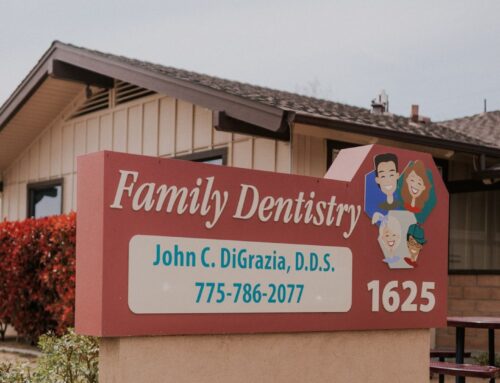If you are one of the millions of Americans who suffer from gum disease, you know how important it is to seek treatment. Gum disease can cause a variety of health problems if left untreated, including tooth loss, heart disease, and even stroke. In this blog post, we will discuss everything you need to know about treating gum disease.
What is gum disease and what are the symptoms?
Gum disease, also known as periodontal disease, is a serious infection of the gums that can lead to a variety of health problems. Gum disease is caused by plaque, a sticky film of bacteria that forms on teeth. Plaque irritates the gums and causes them to become inflamed. This inflammation can eventually lead to gum recession, bone loss, and tooth loss.
Symptoms of gum disease include bleeding gums, bad breath, receding gums, and loose teeth. If you experience any of these symptoms, it is important to see a dentist as soon as possible. Gum disease is a serious infection that requires professional treatment.
How is gum disease diagnosed and treated?
Gum disease is typically diagnosed by a dentist or periodontist. A comprehensive dental exam will be conducted, and X-rays may be taken to assess the severity of the infection. Your dentist will also check for signs of gum recession, bone loss, and tooth decay.
Once gum disease has been diagnosed, treatment can begin.
Types of Treatment
There are a variety of different treatments available for gum disease. The type of treatment that is right for you will depend on the severity of your infection.
Some common treatments for gum disease include:
-Scaling and Root Planing: Scaling and root planing is a deep cleaning procedure that removes plaque and tartar from your teeth and gums. This procedure is often done in multiple sessions, and may require local anesthesia.
-Antibiotics: Antibiotics can be used to kill the bacteria that cause gum disease. They are typically prescribed in the form of a mouthwash, gel, or pill.
-Surgery: In severe cases of gum disease, surgery may be necessary to restore the health of your gums. Surgery can involve a variety of different procedures, including gum grafts, flap surgery, and bone grafting.
The effects of treatment will vary depending on the severity of your infection. In most cases, however, the effects of treatment are long-lasting. Once your gum disease is under control, you can maintain healthy gums by brushing and flossing regularly, seeing your dentist for regular cleanings and checkups, and avoiding tobacco products.
What can you do to prevent gum disease from occurring in the first place?
There are a few things you can do to lower your risk of developing gum disease. First, be sure to brush and floss your teeth regularly. This will help remove plaque from your teeth and gums. You should also see your dentist for regular checkups and cleanings. And lastly, if you use tobacco products, quitting can help reduce your risk of developing gum disease.
Schedule your appointment and treat gum disease today
If you think you may have gum disease, don’t wait to get treatment. Gum disease is a serious infection that requires professional treatment.
Contact our Reno dental experts to improve your oral health today.






